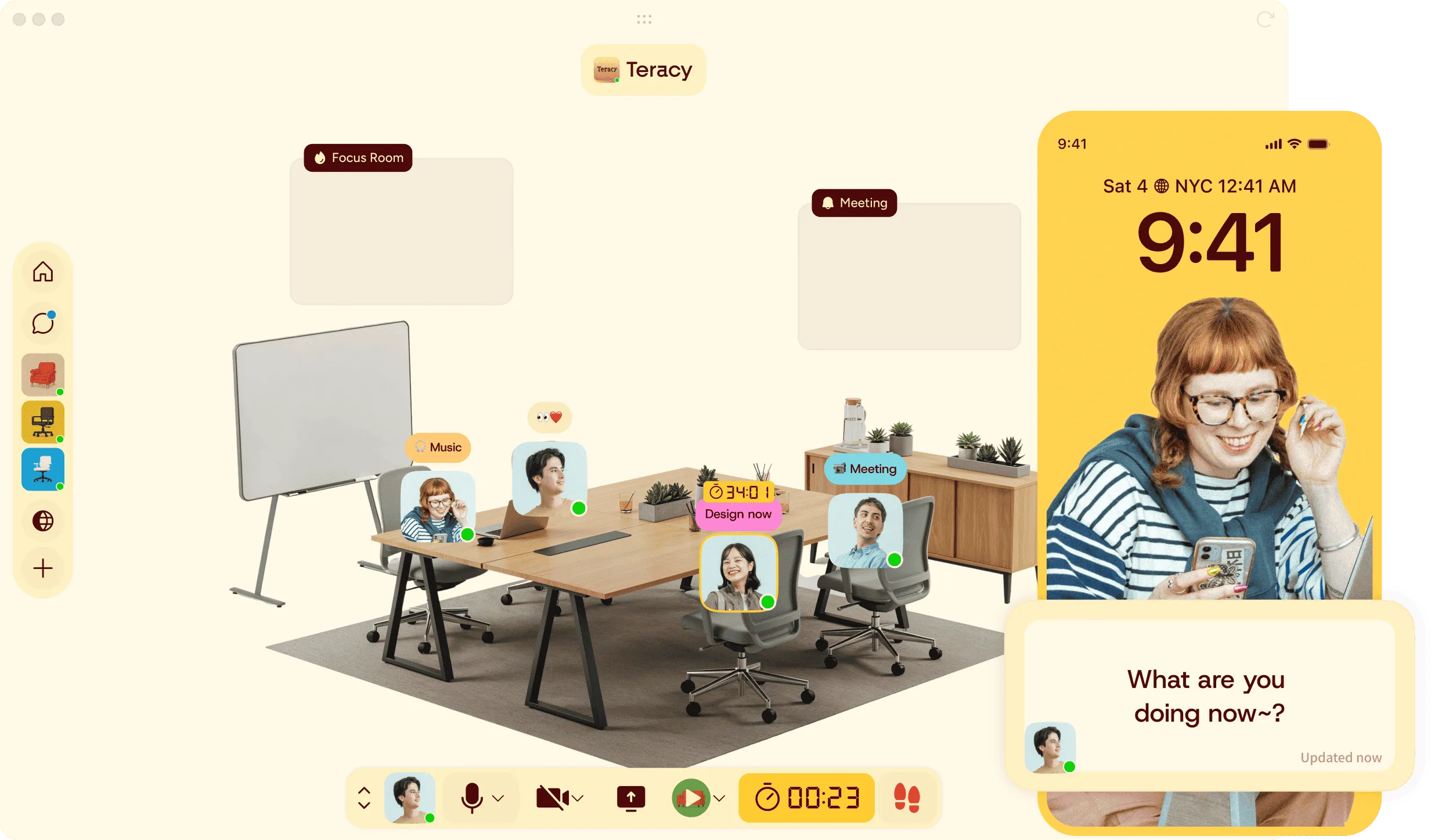Story
[Why I Joined Teracy] Feeling restricted in where to live after moving to Tokyo during the pandemic.
SHARE THIS POST
As fate would have it, I stepped off an overnight bus at Tokyo Station on the very day before the city declared its first state of emergency due to the coronavirus.
My chest was filled with anticipation for my new career as an engineer, but those hopes would abruptly change shape the very next day.
Immediately after moving, I joined a Tokyo company as a freelance engineer. But from the very first day, I began working remotely, without even having time to learn the office's location, let alone commute to it.
Freed from the act of "going to the office," the work itself became surprisingly comfortable. I spent my days immersed in my tasks at my own pace in the quiet of my home. Yet, in exchange for that quiet, there was always a creeping sense of loneliness in the corner of my mind, something difficult to put into words.
Work communications were exchanged through screens. The words "Good work" arrived as text in a chat window. What was missing was the casual conversation I remembered from my previous workplace, the sound of a colleague breathing at the next desk, that subtle, shared energy of occupying the same physical space.
Occasionally, social restrictions would temporarily ease, and I would have the chance to meet up offline with team members I clicked with. We would laugh face-to-face, sharing a meal at the same table. In those moments, that clinging loneliness would vanish, as if it had never been there at all.
But it was always fleeting. I would return home, sit back down in front of my PC, and within a month or two, that quiet solitude would creep back in.
Before I knew it, I felt as if I were paying Tokyo's high rent just for these gatherings that happened once every month or two.
Of course, I knew those offline meetups were incredibly valuable and meaningful. At the same time, I could not shake a persistent sense of unease about my life: the state of continuing to work remotely while feeling this profound loneliness, and the fact that I was tied to the location of "Tokyo" solely to resolve it.
The stagnant days with no clear exit continued. With almost no opportunities to meet new people, the city of Tokyo, which I had admired so much, gradually began to feel suffocating.
Looking back on it now, I believe I was simply, deeply exhausted by the stagnation itself, by the unchanging routine and the prolonged lack of physical human connection.
But at the time, I wasn't able to organize my feelings so objectively. I just vaguely felt that "maybe the Tokyo environment doesn't suit me." The desire to live more freely in a place I loved, a place where I could truly be myself, grew stronger by the day.
It sounds contradictory, but the work itself was technically challenging, deeply enjoyable, and incredibly rewarding. This only deepened my dilemma.
I found myself strongly wishing, "I want to live where I love, and continue this enjoyable work remotely, but without the loneliness."
It was then, while searching for a way to change my situation, that I received a message through a freelance matching service I had registered for. It was December, in the winter of 2021.

This image shows a message from Shunsuke Morii, the CEO of a company called Teracy, to a person named Yuya Mimura. He is reaching out to recruit Mimura as a new developer for his company's remote work communication tool, also named Teracy.
The message was about the development of a new communication tool. For me back then, tools like Slack and Zoom were just things I "used" for work. The idea of "building" one ourselves had never really occurred to me.
But as I read the message, my own experience suddenly overlapped with its words. "I have these skills as an engineer," I thought. "Instead of just being a user who feels dissatisfied, I want to build a product for people who face the same loneliness and inconvenience that I do."
With that thought, I replied.

This image is Yuya Mimura's reply. He introduces himself as a freelance engineer and says that as a remote worker himself, he has also experienced the challenges of remote "conversation." He expresses that he deeply relates to Teracy's product and is interested in helping.
The theme Teracy championed at the time was: "Opportunity, Creativity, and Love for All, Beyond Location."
When I read those words, I felt a distinct sensation, as if a small flame had flickered to life deep in my cold chest.
I intuited that the "loneliness of remote work" and the "confinement of being tied to one place" that I had been carrying for the past year and a half were the very issues this philosophy aimed to confront head-on.
People creating things together, no matter where they live. Working with colleagues you trust completely, while living in a place you love. Here were people trying to make that ideal world a reality, not as a mere fantasy, but with genuine intention.
I resonated deeply with their passion and their philosophy. And I became convinced that the very constraints, loneliness, and sense of stagnation I had felt in Tokyo would become my "driving force" for understanding the feelings of those who needed this product.
I wanted to create something that would help others who felt the same way. And so, I decided to join Teracy.
Yuya Mimura
SHARE THIS POST
More in
Story







